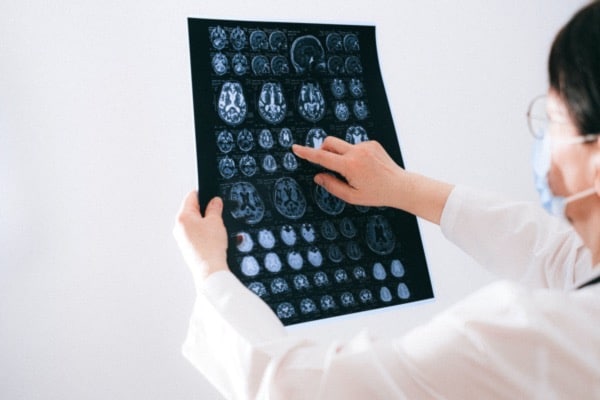Her brain had all the signs of Alzheimer's. She never got it. What can she teach us?
Scientists examine the curious case of a woman with genes for early-onset Alzheimer’s who never developed the disease. In an autopsied brain, they found a mutation in the APOE3 gene that could be the key to preventing early-onset forms of the disease.
A small portion of Alzheimer’s cases are directly linked to mutations that cause the accumulation of beta-amyloid proteins and cognitive dysfunction early in life. Aliria Rosa Piedrahita de Villegas, a woman from Colombia, was part of an extended family that carried one of these genetic mutations in a gene called PSEN1.
But rather than developing Alzheimer’s in her 40s or 50s as others with that same mutation would, she lived dementia-free into her 70s, dying from a bout of metastatic melanoma in 2020.
She also carried two copies of a mutation of a gene called APOE3, known as the Christchurch mutation. You may have heard of APOE4, another version of this gene. It transports fat and cholesterol throughout the body. It also raises carriers’ Alzheimer’s risk by a factor of two.
Scientists had followed this woman throughout her life and also examined her brain after death in hopes of finding new treatments. They found that although there were amyloid plaques in the brain, as expected due to the PSEN1 gene, they weren’t localized in regions important for memory and complex cognitive tasks. They think that the Christchurch mutation might have something to do with it.
“It is seldom that we have nice surprises while studying familial Alzheimer’s disease brains,” said co-first author, Diego Sepulveda-Falla, physician and research lead at University Medical Center Hamburg-Eppendorf.
“This patient’s genome has been extensively analyzed for the last four years,” Sepulveda-Falla told Being Patient, adding that it is the only genetic trait they found that could explain the woman’s resilience to Alzheimer’s and lead to new treatments.
Figuring out why the Christchurch mutation made this woman’s brain so resilient could lead to more successful treatments of early-onset Alzheimer’s. Roche’s anti-amyloid drug crenezumab faltered in a large, nine-year-long prevention study, compounding the efficacy controversy around its predecessor aducanumab (now Aduhelm), casting further doubt on the beta-amyloid approach altogether.
“This is a ground-breaking case for Alzheimer’s disease and has already opened new paths for treatment and prevention, which we’re currently pursuing with some collaborators,” said Yakeel T. Quiroz, an associate professor at Harvard Medical School and director of the Multicultural Alzheimer’s Prevention Program at Massachusetts General Hospital, who is leading the research. “This work is now bringing light into some of the mechanisms of resistance to Alzheimer’s disease.”
The team’s recent findings were published in the journal Acta Neuropathologica. Despite the woman’s brain having many of the pathological features of Alzheimer’s disease, she remained cognitively healthy. Interestingly, the brain regions that tend to accumulate clumps of tau proteins in Alzheimer’s — the frontal cortex which is responsible for complex thinking, and the hippocampus which is responsible for memory and learning — were spared. Instead, tau accumulated in the occipital cortex, which is responsible for visual processing.
The APOE3 Christchurch variant may have influenced where tau proteins formed, in addition to halting the disease’s onset or stunting its severity and progression of a genetic form of Alzheimer’s disease.
When they introduced this mutation into brain cells grown in a dish or animal models of Alzheimer’s, they saw similar protective effects. Sepulveda-Falla said that selectively modifying the APOE gene could protect against Alzheimer’s. Additionally, studying the APOE3 protein with the Christchurch mutation in the lab can help develop drugs that mimic its effects.





